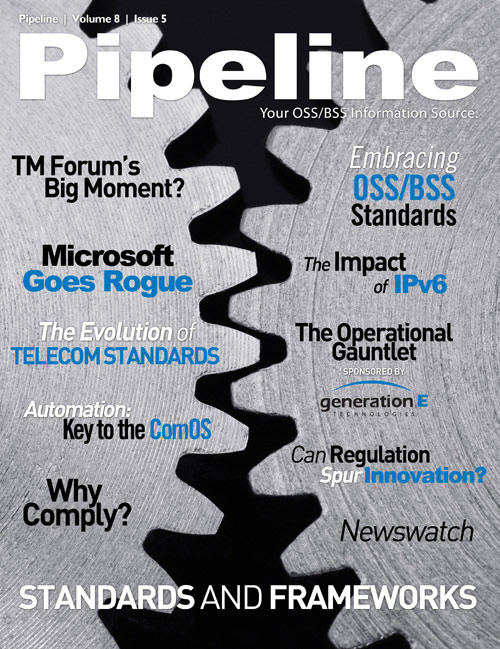Or take Sarbanes-Oxley (SOX) compliance. Since the 2002 passage of that ‘auditing accountability’ bill in the wake of the WorldCom and Enron scandals, major enterprises like telecom service providers are required to maintain a level of accounting transparency that has far from the norm prior to the implementation of the legislation.
The better part of a decade later, BSS providers are able to use SOX compliance as a selling point for larger revenue and inventory management solutions. Subex touts that the asset tracking functionality in its ROC Data Integrity Management solution as aiding in SOX compliance due to its improvement in accuracy in financial reporting.
Comptel, likewise, promotes the enabling of SOX compliance offered by its inventory solution. The same goes for any number of other BSS companies as they look to plug their solutions as a way to do something your company is forced to do while simultaneously doing something your company would benefit from doing.
And this isn’t only the case for BSS firms. I recall that back when E911 regulations started becoming a major issue, OSS firms like Agilent were emphasizing how their solutions were helping wireless firms comply with the wireless location components of the new standards.
And there are more regulations on the way.
Lawful intercept requirements have become a part of the pitch line for network monitoring and deep packet inspection companies, who can simultaneously emphasize the “musts” brought about by regulation along with the “shoulds” brought about by everyday business realities. However, there has been a recent push in the US to expand one of the major lawful intercept measures to include new areas of the communications space.


The Communications Assistance for Law Enforcement Act (CALEA) has been in force since 1994, but only within the last year has the FBI, along with other law enforcement agencies, made a push to extend CALEA to include other types of communications technologies that were barely an issue when the legislation was conceived. Now, however, according to a statement from Valerie Caproni, General Counsel for the FBI, that agency and other government agencies, “are facing a potentially widening gap between our legal authority to intercept electronic communications pursuant to court order and our practical ability to actually intercept those communications.”
This capability gap, referred to as the “going dark” problem by enforcement agencies, represents yet another potential opening for network monitoring and DPI firms plays to provide useful solutions, as well as capitalize on increased issue visibility to promote other benefits of their wares.
Furthermore, while any malfeasance that may have contributed to the current economic client has yet to produce reform as far-reaching as Sarbanes-Oxley, it’s not hard to imagine that one aspect of full recovery (assuming it ever arrives) will be a fresh set of financial regulations. Furthermore, power consumption among service providers is sizable, as we outlined in our July issue. Might concerns about power use and emissions lead to tougher standards on infrastructure power use? And how might vendors help service providers cut carbon while also cutting cost? These are questions that vendors are bound to offer answers to as new requirements emerge.
Ultimately, then, while regulation may stifle some types of growth, it may spell dollar signs for many communications IT firms. Furthermore, the quest to dot every “I” and cross every “t” for the sake of compliance may lead to opportunities to maintain and streamline other aspects of the business. Regulation, though tough to get excited about, sometimes prove to be a catalyst for positive growth.
So, I’ll leave it to our readers: Has regulation ever proven to be a positive thing for your business? A negative thing? Just another cost? A barrier to expansion? Contact us at editor@pipelinepub.com and tell us your story.










